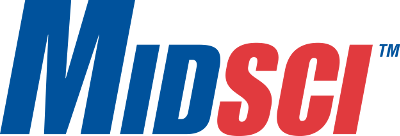 S2K Commerce - Products Dropdown
S2K Commerce - Products Dropdown
 S2K Commerce - Shopping Cart
S2K Commerce - Shopping Cart
 S2K Commerce - Order Entry
S2K Commerce - Order Entry
Thallos AM
Best in class, green fluorescent, thallium (Tl+) indicator, membrane permeable. Works with potassium (K+), sodium (Na+), and monovalent cation channels, and transporters.
Thallos is a green fluorescent, intracellular thallium (Tl+) indicator, and has been the gold standard for fluorescence-based potassium (K+) channel HTS for nearly 2 decades. Thallos also delivers outstanding results for a wide variety of monovalent cation (sodium – Na+) channels, transporters, and GPCRs.
Item#:
ASTHALLOSAM
ION Biosciences Fluo-2 K+ Salt
Green fluorescent, calcium (Ca²+) indicator, membrane impermeable. Higher Ca²+ affinity than Fluo-4.
Fluo-2 is a green fluorescent, calcium (Ca²+) indicator. Fluo-2 has higher Ca²+ affinity (Kd = 290 nM), superior cell loading and comparable spectral properties compared to Fluo-4. Offers superior sensitivity versus other Fluo analogues at lower Ca²+ concentrations.
Fluo-2 K+ salt is a membrane impermeable form of Fluo-2 that can be used in lipid membrane-free systems, in liposomes, or can be introduced into cells by electroporation, microinjection or other methods.
Item#:
ASFLUO2AMST
ION Biosciences Fura-2 LR K+ Salt
Leakage-resistant, ratiometric calcium (Ca²+) indicator, membrane impermeable.
UV-excitable, ratiometric green indicator for intracellular calcium (Ca²+) measurements with longer cellular retention compared to Fura-2 AM and similar spectral properties. Ex/Em: 340/505 nm can be used to measure Ca²+-bound Fura-2, and Ex/Em: 380/505 nm can be used to detect Ca²+-free Fura-2. Ratiometry is optimal for imaging applications where quantification of intracellular Ca²+ concentrations is desired, and reduces effects of photobleaching, heterogenous dye loading, and variable cell morphology.
Fura-2 LR K+ salt is a membrane impermeable form of Fura-2 LR that can be used in lipid membrane-free systems, in liposomes, or can be introduced into cells by electroporation, microinjection or other methods.
Item#:
ASFURA2LRKST
ION Biosciences BCECF AM
BCECF AM is the most popular green fluorescent, intracellular pH indicator. BCECF has a pKa of ~7, and exhibits pH-dependent, dual-excitation properties (Ex/Em 430nm/535nm and 490nm/535nm) for ratiometric analysis. Ratiometry is optimal for imaging applications, and reduces effects of photobleaching, heterogenous dye loading, and variable cell morphology. For HTS applications, BCECF can also be used in non-ratiometric mode using standard fluorescein excitation and emission settings.
BCECF AM is the most popular green fluorescent, intracellular pH indicator. BCECF has a pKa of ~7, and exhibits pH-dependent, dual-excitation properties (Ex/Em 430nm/535nm and 490nm/535nm) for ratiometric analysis. Ratiometry is optimal for imaging applications, and reduces effects of photobleaching, heterogenous dye loading, and variable cell morphology. For HTS applications, BCECF can also be used in non-ratiometric mode using standard fluorescein excitation and emission settings.
Item#:
ASBCECFAMPN
ION Biosciences Brilliant Sodium Flex Kit
ION’s Brilliant Sodium Assay is a total assay solution for multi-well plate-based, high-throughput measurements of changes in intracellular Na+ mediated through a wide-variety of plasma membrane and intracellular sodium channels and transporters. In multi-well, plate-based formats, the Brilliant Sodium Assay can be used to discover and characterize the effects of many tens-of-thousands of compounds and environmental factors on effectors of intracellular Na+. ION’s Brilliant Sodium Assay provides all the reagents necessary for use as a wash or no-wash assay with adherent or non-adherent cells. The optional use of a probenecid solution and an extracellular background masking solution (TRS) offers the ultimate in compatibility for cells types which are difficult to load with fluorescent Na+ indicators (e.g. Chinese Hamster Ovary, CHO cells) and when performing assays in complete, serum-containing cell culture medium is desired.
ION’s Brilliant Sodium Assay is a total assay solution for multi-well plate-based, high-throughput measurements of changes in intracellular Na+ mediated through a wide-variety of plasma membrane and intracellular sodium channels and transporters. In multi-well, plate-based formats, the Brilliant Sodium Assay can be used to discover and characterize the effects of many tens-of-thousands of compounds and environmental factors on effectors of intracellular Na+. ION’s Brilliant Sodium Assay provides all the reagents necessary for use as a wash or no-wash assay with adherent or non-adherent cells. The optional use of a probenecid solution and an extracellular background masking solution (TRS) offers the ultimate in compatibility for cells types which are difficult to load with fluorescent Na+ indicators (e.g. Chinese Hamster Ovary, CHO cells) and when performing assays in complete, serum-containing cell culture medium is desired.
ION’s Brilliant Sodium Assay is compatible with fluorescence microscopes, flow cytometers, and plate readers capable of detecting fluorescein or more optimally, yellow fluorescent protein (YFP).
Item#:
ASBRSOFXK
ION Biosciences Essentials Red Calcium
Red Calcium Essentials provides the necessary reagents for multi-well plate-based, fluorescence microscopy applications and high-throughput measurements of intracellular calcium (Ca²+) mediated changes through a wide variety of plasma membrane and intracellular calcium channels and transporters. Red Calcium Essentials is also useful for investigating numerous effectors of ion channels and transporters, including G-protein coupled receptors.
Red Calcium Essentials provides the necessary reagents for multi-well plate-based, fluorescence microscopy applications and high-throughput measurements of intracellular calcium (Ca²+) mediated changes through a wide variety of plasma membrane and intracellular calcium channels and transporters. Red Calcium Essentials is also useful for investigating numerous effectors of ion channels and transporters, including G-protein coupled receptors.
Our red calcium dye, ION Calcium Red-1 (ICR-1), is a red fluorescent indicator (Ex/Em: 580/660 nm) responsive to intracellular Ca²+ dynamics. ICR-1’s spectral properties allows for multiplexing with an indicator of another color or GFP-tagged cells.
When following the recommended protocol, Red Calcium Essentials provides enough reagents to make 100 mL of working solution, enough for ten 96-well plates. The actual number of assays will vary according to optimal dye concentrations for your application.
Item#:
ASESSREDCAL
